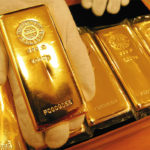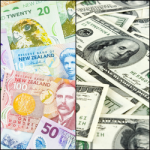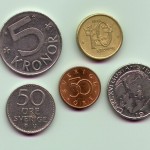Gold rose on Friday marking the longest winning stretch in four months as a steep decline in the US dollar boosted metals appeal as an alternative investment. The precious metal however remained on track to post the biggest annual drop since 1981 and the first decline in 13 years after the Federal Reserve decided to cut its monthly bond purchases starting January. Also adding to bearish sentiment, assets in the SPDR Gold Trust fell to the lowest in almost 5 years.
On the Comex division of the New York Mercantile Exchange, gold futures for settlement in February rose by less than 0.1% on Friday to settle at $1 212.70 per troy ounce. Prices shifted in a daily range between $1 218.30 and $1 208.60 an ounce. The metal gained 0.4% on Thursday and closed the week nearly 0.9% higher following the preceding five-day periods 2.9% slump.
Gold rose on Friday as a stronger euro pressured down the US dollar, thus boosting demand for commodities as an alternative investment. The euro surged to a two-year high against the greenback after Jens Weidmann, a European Central Bank Governing Council member, said that keeping interest rates low may threaten political reforms.
The US dollar index fell by 0.25% on Friday to 80.47 after swinging between a two-week low of 79.83 and days high at 80.67. The March contract was mostly unchanged on Thursday and settled the week nearly 0.4% lower. Weakening of the dollar makes commodities priced in it cheaper for foreign currency holders and boosts their appeal as an alternative investment.
The precious metal also drew support by increased physical demand among Chinese buyers, but it was mostly offset by a recent decline in consumption in Indonesia and Thailand.
US economy outlook
Despite the slight gain this week, gold remained on track to post the worst annual performance since 1981 and cap a 12-year bull run. The precious metal has fallen 28% so far this year and is down 37% since the all-time high of $1 920.30 hit in 2011 as the Federal Reserve announced its intentions to curb its monthly bond purchases.
Futures fell to a six-month low of $1 186.50 per troy ounce last week after policy makers decided to trim Feds quantitative easing program by $10 billion to $75 billion as of next month. The precious metal was further pressured after a recent series of unexpectedly upbeat economic data from the US supported Feds tapering decision and sent equities rallying.
The Department of Labor said on Thursday that the number of people who applied for initial jobless benefits fell more than expected in the seven days to December 21, adding to a recent series of strong US numbers. Initial Jobless Claims declined to 338 000, outstripping analysts’ projections for a lesser drop to 345 000. The preceding period’s reading received an upward revision to 380 000, up from initially estimated at 379 000.
The Commerce Department reported on Tuesday that bookings for goods meant to last more than three years surged 3.5% in November, sharply exceeding projections for a 2.0% advance.
A separate report showed that purchases of new US homes surpassed analysts’ forecasts and remained near the highest level in five years, signaling the housing market retained momentum despite the rise in mortgage rates. New Homes Sales reached a 464 000 annualized pace, beating analysts’ projections for a drop to 435 000. October’s reading received an upward revision to 474 000, correcting the initial estimate of 444 000 homes sold.
On Monday, the final reading of the Thomson Reuters/University of Michigan consumer sentiment index confirmed the preliminary estimate and touched a five-month high of 82.5, despite trailing expectations for a rise to 83.0.
Christine Lagarde, the International Monetary Fund’s managing director, said last week the IMF is raising its outlook for the US economy as the reduction in Fed’s bond purchases and a budget deal in Washington eased concerns that the US economic growth might not be sustainable.
As a gauge of investor sentiment, assets in exchange-traded funds backed by gold have fallen to the lowest since November 2009. Holdings in the SPDR Gold Trust, the biggest bullion-backed ETP, slid to 801.22 tons on Friday, hitting the weakest level in almost five years.





